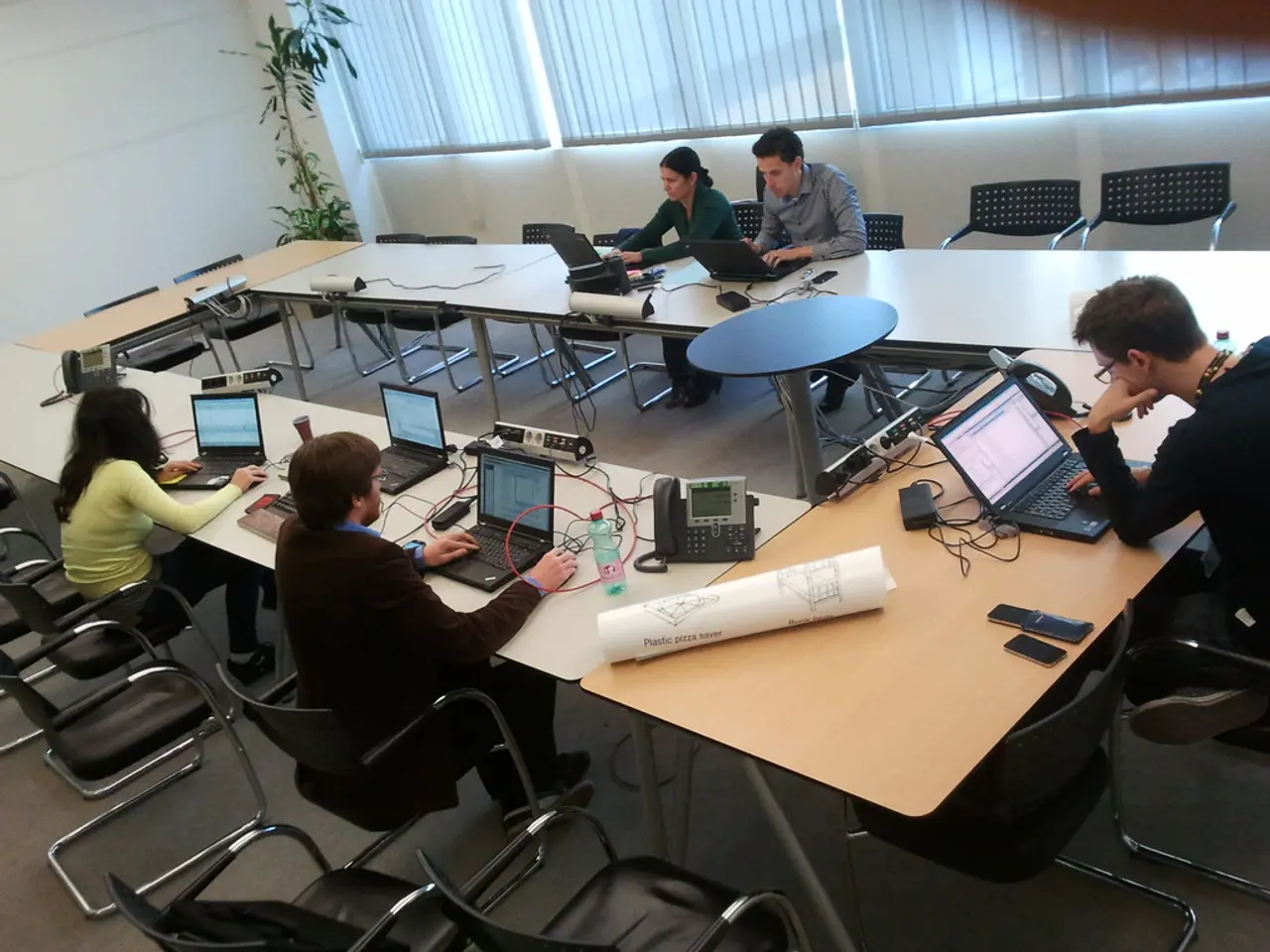Over a million workers left their jobs within the past year due to a lack of flexible working arrangements, and an expert is urging businesses to prioritize flexible work environments to stay competitive.
In today's job market, flexibility is no longer a mere perk; it has become an essential component of a modern workplace. Embracing a hybrid model is not just desirable, but fundamental, as it fosters a sense of community, enhances productivity, and drives innovation.
This shift towards hybrid work has gained immense traction, especially post-pandemic, as employees increasingly prioritize their work-life balance. A hybrid model allows them to tailor their work environment to their individual needs, enhancing job satisfaction and, consequently, productivity.
For instance, about 67% of employees report improved time management and 58% report less burnout with hybrid work. Flexibility also accommodates different work styles and personal responsibilities, boosting engagement and retention.
For employers, the benefits are equally significant. The hybrid model leads to cost savings on office space, access to a broader and more diverse talent pool without geographic constraints, and higher employee productivity. Hybrid work enables in-person mentoring, smoother onboarding, and stronger social bonds that sustain company culture and team collaboration, which pure remote work can lack.
The importance of hybrid work grows as businesses aim to enhance employee well-being, remain competitive in talent acquisition, and adapt to changing expectations post-pandemic. Companies that disregard these benefits may face higher turnover rates and decreased employee satisfaction. Employers who refuse to embrace hybrid working may miss out on top talent in a rapidly evolving job market.
Accommodating individual needs is crucial for fostering a truly inclusive and supportive workplace. A one-size-fits-all policy is not effective in accommodating the diverse needs of employees. Aman Parmar, Head of Marketing at Bizspace, offers insight into how businesses can create an environment that caters to diverse employee needs by offering a range of work options.
The future of work lies in flexibility, collaboration, and the empowerment of the workforce. Over a third of workers felt that news stories about mandatory office attendance were negatively affecting their wellbeing. In fact, over one million UK workers left their jobs due to a lack of flexible working options in the past year. The hybrid work approach combines the benefits of remote and in-office environments, providing a sustainable and balanced approach to meet diverse employee needs and evolving business demands.
References:
[1] The Advantages of Hybrid Work for Employers and Employees. (2021). Retrieved from https://www.forbes.com/sites/forbesbusinesscouncil/2021/09/23/the-advantages-of-hybrid-work-for-employers-and-employees/?sh=696d8e5e7733
[2] The Hybrid Work Model: A New Way of Working. (2021). Retrieved from https://www.mckinsey.com/business-functions/organization/our-insights/the-hybrid-work-model-a-new-way-of-working
[3] The Benefits of Hybrid Work for Employers and Employees. (2021). Retrieved from https://www.hbr.org/2021/05/the-benefits-of-hybrid-work-for-employers-and-employees
[4] The Impact of Hybrid Work on Employee Engagement and Retention. (2021). Retrieved from https://www.gallup.com/workplace/306217/impact-hybrid-work-employee-engagement-retention.aspx
Technology plays a crucial role in facilitating the hybrid work model, enabling seamless communication and collaboration among remote and on-site employees. [1] [3] [4]
In the realm of education and self-development, technology allows for a plethora of online courses and resources, ensuring employees can upskill regardless of location. This accessibility furthers marginalized communities' opportunities for growth and success in the job market. [2]




